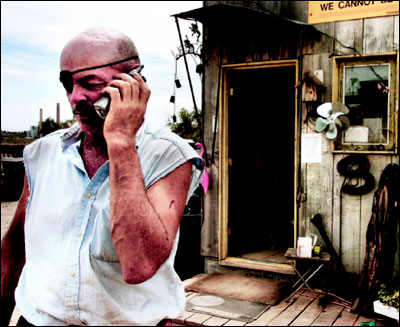 Apparently I have a problem with terminology. I’m not sure when this started, but after writing a piece on the semantics of the term “CSR”, I have come across other situations in which terms that I thought were relatively clear, are in fact completely opaque. My new find? Social enterprise. I know what your thinking. It’s a business that has positive social outcomes at its core, equal to the importance of financial sustainability. That’s what I thought too. But as I was digging around for a new idea on that very topic I came across something rather interesting.
Apparently I have a problem with terminology. I’m not sure when this started, but after writing a piece on the semantics of the term “CSR”, I have come across other situations in which terms that I thought were relatively clear, are in fact completely opaque. My new find? Social enterprise. I know what your thinking. It’s a business that has positive social outcomes at its core, equal to the importance of financial sustainability. That’s what I thought too. But as I was digging around for a new idea on that very topic I came across something rather interesting.
It’s an article called “Burberry’s: The Ultimate Social Enterprise”. Having written about sustainability in the luxury goods realm and curious about what the “ultimate social enterprise” might entail, my interest was immediately piqued. Turns out in this case, “social enterprise” refers to a campaign in which advertising/word of mouth is spread solely through social media and access to the product is available at all times. Now, I’m no stranger to social media, having picked up a rather intense Twitter addiction over the last 6-12 months, but I’ve never heard of a social enterprise as one referring to the use of social media. Nor have I ever heard of the definition given in the article.
“A true social enterprise incorporates social elements into every aspect of its business. Many fashion brands still find it hard to take the right steps within social media marketing, often using the medium in the same way they use print and outdoor: pushing their message.”
It’s not clear where this definition came from. While it’s unclear how long the original definition of “social enterprise” that I state at the beginning has been around it seems as though it has been in existence much longer than Facebook or Twitter. A simple Google search for “social enterprise” will confirm the widespread acceptance of the term.
A few weeks ago, Salesforce had a heavily covered conference called Dreamforce, which discussed the use of CRM (customer relationship management) as one that will be conducted through social media and they decided to refer to companies adopting these principles as “social enterprises”. So, has the term been hijacked by Salesforce? And is there room for two completely distinct and differing definitions of “social enterprise”?
Interestingly, I’ve never been a huge fan of defining these types of terms. In fact, I look forward to the day when social entrepreneurs are simply called entrepreneurs, but using this definition for something completely different when it has already been distinctly defined seems a bit odd. It’s hard to believe that Salesforce (and others) were unaware of this term beforehand, so were they simply attempting to leverage the positive that comes along with it or am I somehow missing the point completely?
Image Credit by Makky via Flickr under a CC license



To me, a social enterprise is an organization that applies capitalistic strategies to achieving philanthropic goals. As far as I’m aware, Burberry has not implemented overall business and production processes with a solely positive social impact.. It’s a shame Burberry/Salesforce are trying to make a run with the wording – social (impact) entrepreneurship is growing and has a positive connotation that has little to do with connecting with your audience/customers via social media. Maybe call it social branding?
Ellen- Thanks for your thoughts. I agree, it’s more of a mechanism for branding and/or marketing and one that is hardly unique considering companies of all stripes are using social media in various ways (or should be anyway). It’s interesting to see how much traction this term has gotten in the last month since the Salesforce conference and it will be interesting to see if this situation is addressed on a larger scale.
The term social enterprise in this context is actually referring to the use of social media principles internally via Salesforce tools to bring employees closer together with vendors and each other globally. Connection to twitter/facebook etc isn’t really part of it.
That maybe true with the Salesforce situation, but it seems as though the Burberry campaign is about being able to interact via social/mobile 24/7. Either way, neither example fits the original definition of “social enterprise” which is basically the idea of conducting a business with social good at its core. Thank you for the clarification.
Great Post!
Social Entrepreneurship is indeed the way forward!
For a thorough presentation of Social Entrepreneurship and the impact it will have on the future of humanity,
I strongly recommend a recent book, Social Entrepreneurship, The Secret to Starting a Business Worth Living For.
A good review of the book can be found Here.